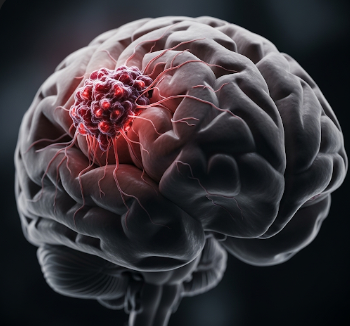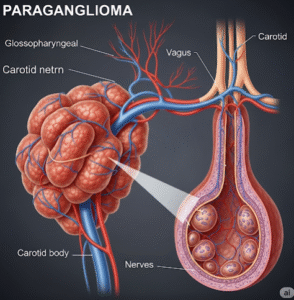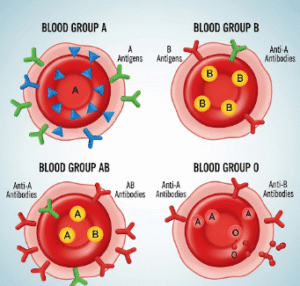Overview
Brain cancer, also known as a malignant brain tumor, occurs when abnormal cells grow uncontrollably in the brain tissue. Brain cancer can be primary, originating in the brain, or secondary (metastatic), spreading from other parts of the body such as the lungs, breast, or skin.
In Korea, brain cancer is managed in neuro-oncology centers, neurosurgery departments, and specialized cancer hospitals using state-of-the-art diagnostic tools, targeted therapies, and advanced surgical interventions. Korean healthcare emphasizes multidisciplinary treatment approaches, combining surgery, radiation, chemotherapy, and supportive care to improve survival and quality of life.
What is Brain Cancer?
Brain cancer involves malignant tumor growth within brain tissue, disrupting normal brain function and potentially increasing intracranial pressure. Types of brain cancer include:
- Gliomas: Arising from glial cells; includes astrocytomas, oligodendrogliomas, and glioblastomas
- Medulloblastomas: Common in children, originating in the cerebellum
- Meningiomas: Usually benign but may become malignant
- Primary CNS lymphomas: Arising from immune cells in the brain
- Secondary brain tumors: Metastases from cancers elsewhere in the body
Brain cancers can be classified based on location, growth rate, and malignancy, influencing treatment options and prognosis.
Symptoms
Symptoms vary depending on tumor location, size, and growth rate:
- Persistent headaches, often worse in the morning
- Nausea and vomiting due to increased intracranial pressure
- Seizures or convulsions
- Cognitive or personality changes such as memory loss or confusion
- Weakness or numbness in limbs or face
- Vision or speech difficulties
- Balance and coordination problems
- Fatigue and drowsiness
Early detection is challenging because initial symptoms may be subtle or mimic other neurological conditions.
Causes
The exact cause of brain cancer is not fully understood, but several factors contribute to its development:
- Genetic mutations: Alterations in genes regulating cell growth and apoptosis
- Radiation exposure: High-dose radiation increases risk of certain brain tumors
- Family history: Rare inherited genetic syndromes like Li-Fraumeni syndrome
- Immune system deficiencies: Increased susceptibility to primary CNS lymphomas
- Environmental factors: Exposure to carcinogenic chemicals in rare cases
- Previous cancers: Risk of metastatic brain tumors from primary cancers elsewhere
Risk Factors
- Age: Certain brain cancers are more common in children or adults depending on type
- Gender: Some tumor types, like meningiomas, are more common in women
- Family history of brain tumors
- Exposure to ionizing radiation or carcinogens
- Compromised immune system
- History of cancer elsewhere in the body
Complications
Brain cancer can lead to serious and life-threatening complications:
- Increased intracranial pressure, causing headaches, nausea, and vision changes
- Neurological deficits such as paralysis, speech impairment, or memory loss
- Seizures, which may be recurrent and difficult to control
- Hydrocephalus, accumulation of cerebrospinal fluid due to obstruction
- Cognitive decline or personality changes
- Spread of cancer (metastasis) to other parts of the central nervous system
- Death, especially in high-grade malignant tumors like glioblastoma
Prevention
There is no guaranteed way to prevent brain cancer, but some measures may reduce risk:
- Avoid unnecessary exposure to radiation, including CT scans unless medically indicated
- Healthy lifestyle: Balanced diet, regular exercise, and avoiding smoking and alcohol
- Early detection of cancers elsewhere to prevent metastatic brain tumors
- Genetic counseling for families with inherited cancer syndromes
- Prompt evaluation of neurological symptoms such as persistent headaches or seizures
Treatment Options in Korea
Diagnosis
Early and accurate diagnosis is critical for effective treatment:
- MRI (Magnetic Resonance Imaging): Gold standard for tumor detection and localization
- CT scan: Useful for rapid assessment of brain lesions
- Magnetic Resonance Spectroscopy (MRS): Evaluates tumor metabolism
- PET scan: Identifies metabolic activity and metastasis
- Biopsy: Confirms tumor type and grade through histopathology
- Genetic and molecular testing: Guides targeted therapy and personalized treatment
Medical Management
Treatment depends on tumor type, location, size, and patient health:
- Chemotherapy: Systemic or localized agents to kill cancer cells
- Targeted therapy: Drugs that specifically target molecular mutations in tumor cells
- Immunotherapy: Boosts the immune system to attack cancer cells
- Corticosteroids: Reduce swelling and intracranial pressure
- Anticonvulsants: Control seizures caused by tumor activity
Surgical Management
- Craniotomy: Open surgery to remove tumor tissue
- Minimally invasive techniques: Endoscopic approaches for deep-seated tumors
- Stereotactic surgery: Precision-guided removal or biopsy
- Debulking: Reduces tumor mass to relieve pressure when full removal is not possible
Radiation Therapy
- External beam radiation therapy (EBRT)
- Stereotactic radiosurgery (SRS): Precise, high-dose radiation for small or difficult-to-reach tumors
- Proton therapy: Advanced option available in specialized Korean centers
Supportive Care
- Rehabilitation: Physical, occupational, and speech therapy for neurological deficits
- Psychological support: Counseling for patients and families
- Palliative care: Symptom management for advanced or incurable tumors
- Nutritional support and pain management
Prognosis
The prognosis of brain cancer depends on tumor type, grade, location, and response to treatment:
- Low-grade tumors often have favorable long-term survival with complete surgical resection
- High-grade malignant tumors, such as glioblastoma, have poorer prognosis despite aggressive treatment
- Early detection and treatment significantly improve survival and quality of life
- Korean hospitals provide cutting-edge neurosurgery, radiation therapy, and multidisciplinary care, which enhance treatment outcomes
- Long-term monitoring through imaging and follow-ups helps prevent recurrence and manage complications
With advanced diagnostic imaging, personalized therapy, and comprehensive rehabilitation, Korea offers world-class care for brain cancer patients, aiming for optimal survival rates, improved neurological function, and enhanced quality of life.













